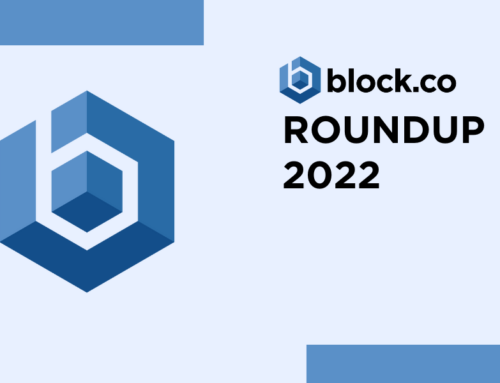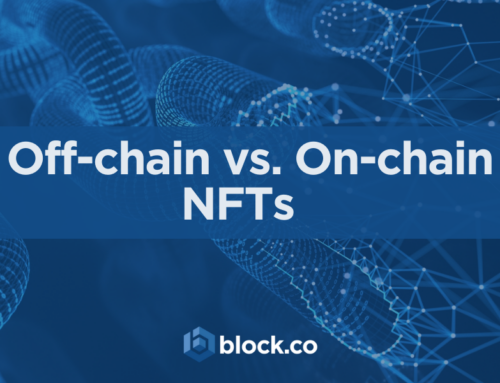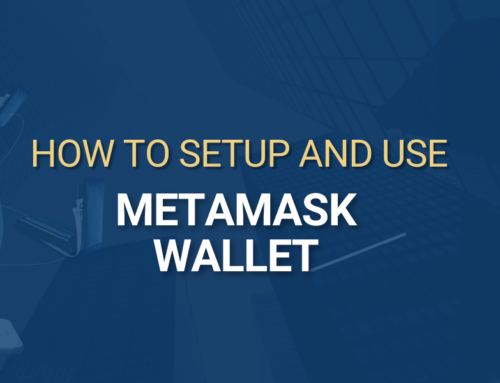Hospitality Industry & NFTs
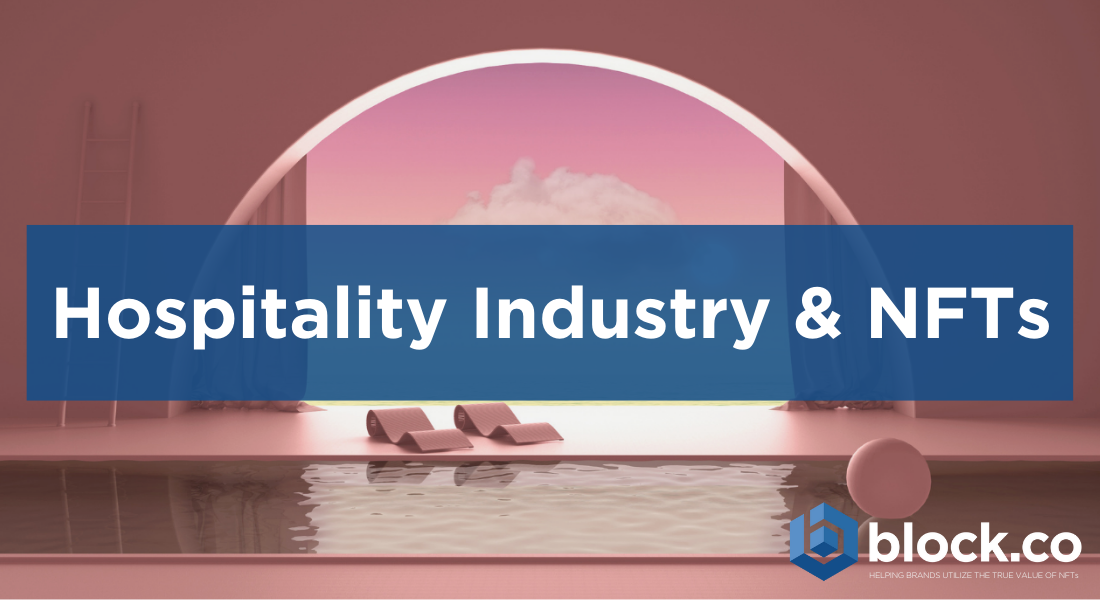
Updated 11/30/2022
What are NFTs?
Traditionally, the ownership of any asset has been verified by paper or centralized systems. However, papers and existing systems have proved themselves to be outdated, inefficient in the transfer process of assets, and have an increased risk of fraud.
NFTs (Non-fungible-tokens) came to solve that issue, as they are blockchain-based tokens that each represent a unique asset. Their main function is to digitally verify an asset’s ownership. It is very difficult to tamper with this information, thus having an increased risk of fraud. Also, being digital assets on the blockchain, they can be transferred way more easily. What this means is: brands and businesses have access to a more efficient system to verify and transfer assets in a digital or physical (bridge the physical with the digital) manner.

Technically, NFTs are cryptographic [codes protecting information so that only those for whom the information is intended can access it] assets on a blockchain with unique identification codes and metadata that distinguish them from each other.
Non-fungible means that these digital assets are unique and cannot be replicated.
To sum it up, NFTs are unique digital assets that are protected by cryptography and are present on the blockchain, which reduces the risk of fraud and optimizes the transfer of owned assets. These assets which are Tokenized, can represent real-world assets. So, NFTs can make the transfer of ownership of tangible physical assets better and faster between parties.
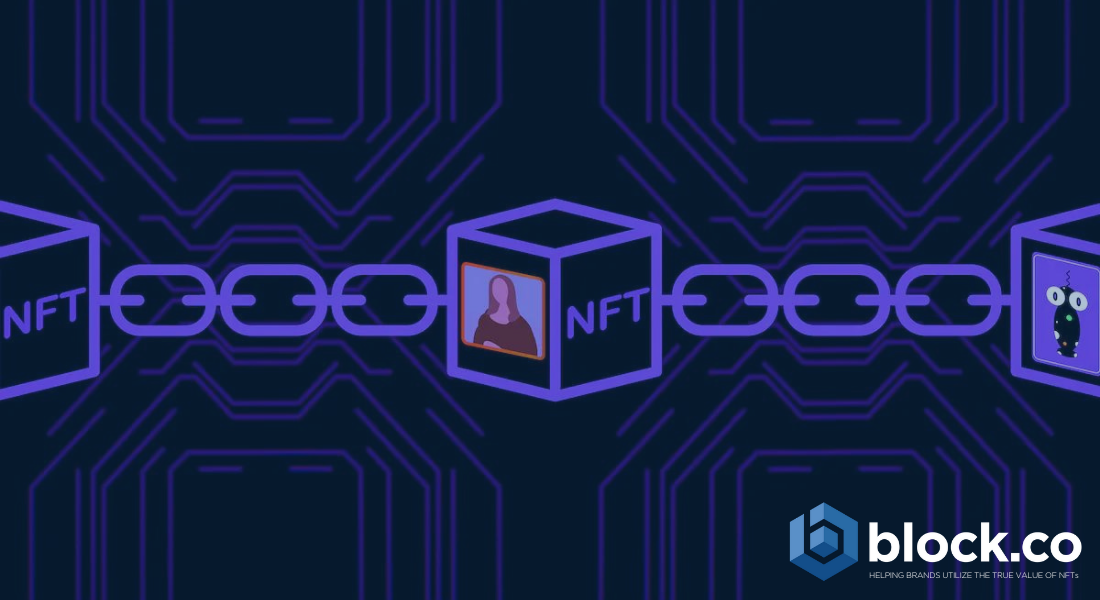
Think of it this way. You have a token rather than a piece of paper, and this token represents that something is yours in the real world, and it is very hard to tamper or disprove that you own this real-world object, because it is verified on the blockchain. And this token can be safely sent and exchanged between parties without the need for a middleman.
How will NFTs transform the hospitality industry?
Non-Fungible tokens have taken the world by storm in 2021, starting first around digital art, and most recently expanding into a plethora of other areas, including brands.
In this article, we will explore why and how the hospitality industry is starting to embrace NFTs to increase engagement with their customers and offer experiences that were not possible before.
In the 2020s’ technology began to ramp up within the hospitality industry
In a bid to better customer experience and not seem outdated relative to other industries, the hospitality industry ramped up digitization with self-check-ins, contactless service, online booking, and payment via apps being the new norm.
However, providing a good customer experience with a mix of human and tech-enabled interactions was, and still is a challenge. Most new customers crave experience. Thus, the company must be doing everything it can to adhere to this.
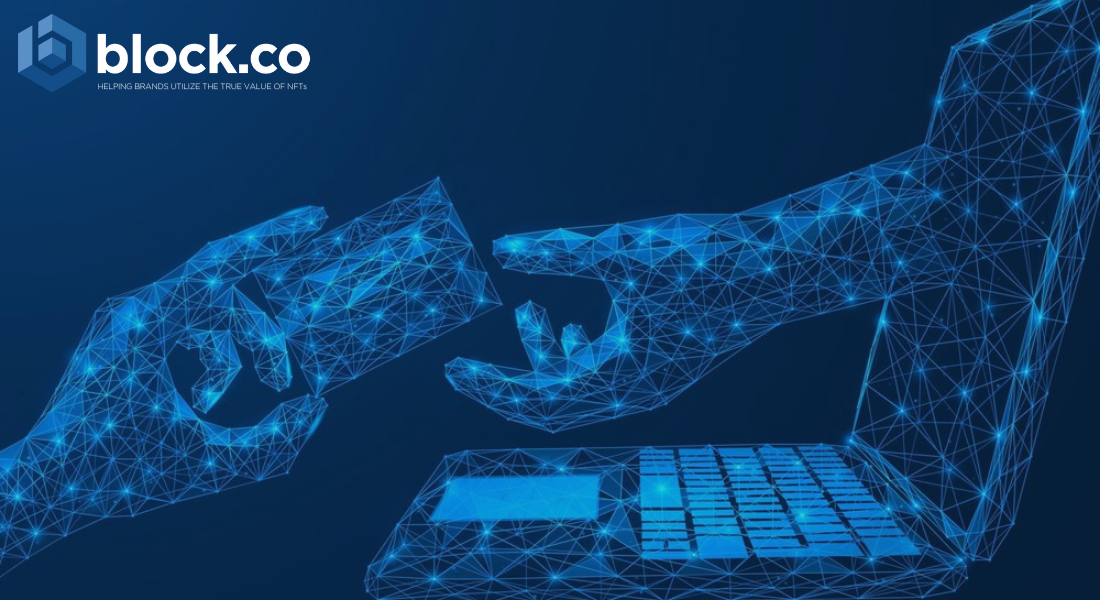
We still haven’t seen a new loyalty program that can deliver exceptional rewards and incentives to the industry’s customer base. In addition, greater personalization to customer needs, something that every industry has already taken leaps in, is something the industry needs to work a lot on.
The challenges that lay ahead for the Hospitality industry
As an entity in the hospitality industry, you’ve probably faced one, or many of the challenges we’re about to list here:
- Continuously Changing Consumer demands: A better understanding of customers has become a staple for every industry around the world. The hospitality industry will not be an exception. So, understanding the customer fully is going to be one of the key hotel industry challenges in the years to come. Still, we rarely see the industry implementing technologies and strategies that allow for direct engagement with their customers and better data collection on the wants and needs of their customers. Imagine this, a customer checks in the hotel in Dubai. Upon checking in, he asks for an extra sheet and green tea. When the customer visits a hotel of the same chain in Paris, he finds an extra sheet on his bed along with a hot cup of tea waiting for him next to the bed. It is important to keep in mind that customers today have grown to expect individual treatment, rather than just another person who paid for a room. As consumers expect more personalization, hotels still struggle to collect and translate insights into something meaningful for their clients. When customers willingly share with you their buying behaviour and interests, this enables you to tailor better offers specific to the customers’ needs.
- Loyalty Programs: Known to be the most used marketing strategy by the hospitality industry. The goal was always to increase customer LTV and increase repeat buying. There are multiple challenges facing the hospitality industry when implementing a loyalty program. One is confusion, as some customers will not participate in a system that is difficult to use or that people do not understand. Furthermore, loyalty programs that do not offer something that the customer really wants (back to personalization), such as an unappealing product or offer, is bound to fail.
- Ineffective Marketing: According to the Latest Hotel Industry Trends, technology is going to be the key to achieving a competitive edge. Everything everywhere has been digitized. Being technology averse is not an option anymore. Hotels are now forced to re-strategize their marketing plan to target the online market. Some of the Best Hotel Industry Marketing tools, such as NFTs, are still under-explored. As a result, it is no secret that sales and brand recognition in the industry have suffered. Hotels need to utilize NFTs for customer engagement. Current trends reveal that businesses now must invest in digital marketing to increase ROI. What better way to move toward the future than with the future marketing tool of brands, aka NFTs.
And how will NFTs help hotels overcome those challenges?
Since existing loyalty and reward programs/tools are weak and outdated, they do not cater to the increased digitization of the current consumer and to changing consumer behaviours. None of the existing loyalty programs offer what NFT loyalty programs have to offer in terms of personalization and in terms of reward capabilities. How?
Currently, consumers are usually bundled into groups with common characteristics. A good start, but merely not enough in today’s world, and not close to what the competition is providing in terms of personalization. As mentioned earlier, consumer expectations are way higher than before. And since reputation management is a big success factor for hospitality brands, enhanced customer experience, and consumer delight must become strategic objectives.
Even after engagement by the client with a product of the hotel, hotels still do not collect enough valuable and personalized data about the client. With NFTs however, the brand has the opportunity, following engagement, to build a direct channel of communication with the consumer, and use that channel to push any future targeted and customized promotional activity that the consumer would likely engage with more than previous offers.

Why?
Because of the technology built into NFTs.
Remember that, for NFTs to be transferred between two parties, the two parties must (the hotel and the client in this case) establish direct communication with each other on the blockchain. This is a very simple and seamless procedure that we will discuss later what this means, brands and consumers can now directly engage with each other at scale! The outcome? Greater personalization and engagement!
To establish direct communication, the traveler would visit the hotel’s website and connect his web3 wallet. This would allow the smart contract (of the hotel) to view and verify the assets (NFTs) in the traveler’s wallet. The traveler may then choose to purchase an NFT representing a stay at the hotel, and this NFT would be transferred to the traveler’s wallet for future use.
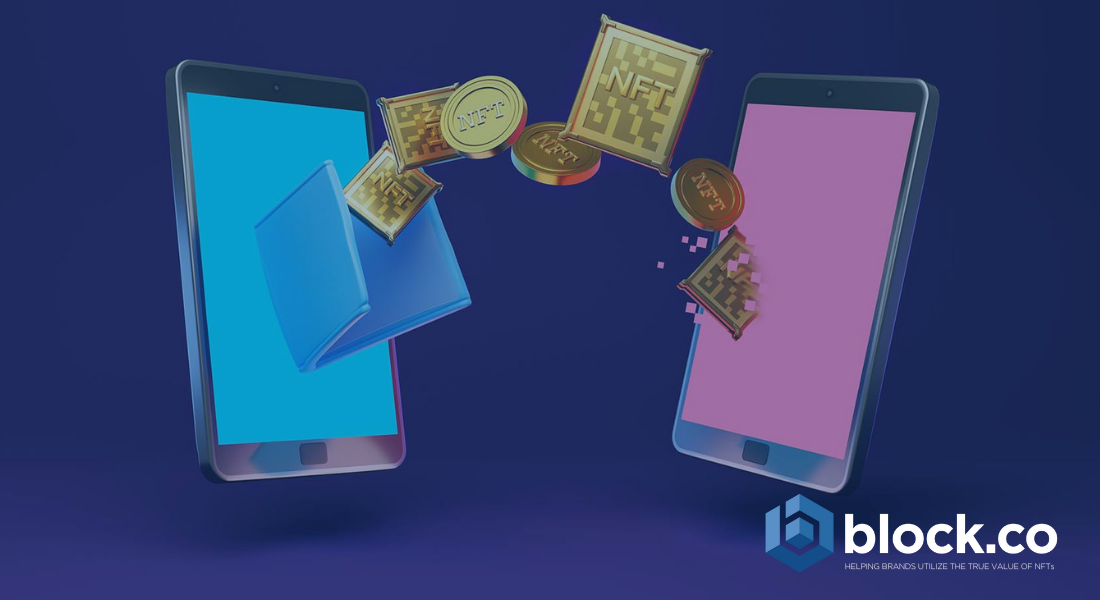
What opportunities arise?
Here are a few:
- Hotels can now build stronger Loyalty Programs to retain their customers and increase customer LTV, as NFTs can revolutionize this feature by creating a permanent record of visitors on the blockchain. Thus, the NFT can host a lot of personalized insights securely about what the customer needs and wants on the blockchain automatically that should be used later to tailor better offers and messaging towards that customer and others sharing the same wants and needs. In addition, hotels can issue an NFT for each visitor, featuring all the required information of each customer in the metadata of the NFT. This will allow the hotel to gather data about any potential customer and better understand its target market. Guests can also hold the NFT as a token representing their loyalty status, an amazing tool for hotels with multiple branches, as they can easily use the NFT data to assess returning customers and reward them for their loyalty.
- Tokenization-as-a-service to save money and time. All hotels are burned with complex data management tools. So, Hotels can improve their back-end operations through the blockchain.. Using NFTs and Smart Contracts, hotels can automate a lot of operations. This would require the use of IoT devices that would monitor the use of room keys/NFTs and produce insights as to which areas of the hotel are most used, as to instruct hotel employees to pay more attention to those specific areas. This would translate to a more efficient system for monitoring operations and delegating tasks where and when needed.
- NFTs can replace room keys, which can automate a lot of processes. For example, the NFT can grant visitor access or deny them access depending on their bookings, such as venues in the hotel, saunas, spas, and discounts on drinks and food from the hotel restaurant. This NFT can then automatically deny access when their duration of stay expires. Additionally, since NFTs cause carbon emissions equivalent to a google search nowadays, they can promote sustainability due to the careless use of plastic card keys which are frequently lost or erased by gadget contact
- NFTs can also be used for promotional strategies and branding activities. For example, VW used NFTs to gamify their Advertisements which skyrocketed engagement according to Ogilvy sSouthAfrica. VW hid NFTs in their Ads, and asked viewers to try and find those NFTs, share their answers on social media. Those that win get the chance to win multiple rewards such as driving the new polo! Hotels can leverage NFTs to do exactly the same thing! Rather than just paying money on Ads that people can’t wait to skip, why not gamify their Ads and offer those that engage with that Advertisements awesome prizes?

- NFTs as souvenirs? Hotels can reward NFTs to every visitor and place images and videos that remind customers of the experience. These NFTs can then be shared on social media so that the consumers can share their experiences with their friends. That’s two birds with one stone. Hotels get to market themselves directly through the customer that shares the NFT on social media, which is a new age word of mouth marketing, while customers get to easily share their amazing experience with their friends. The hospitality industry, through NFTs, transforms customer experiences into timeless memories and marketing material.
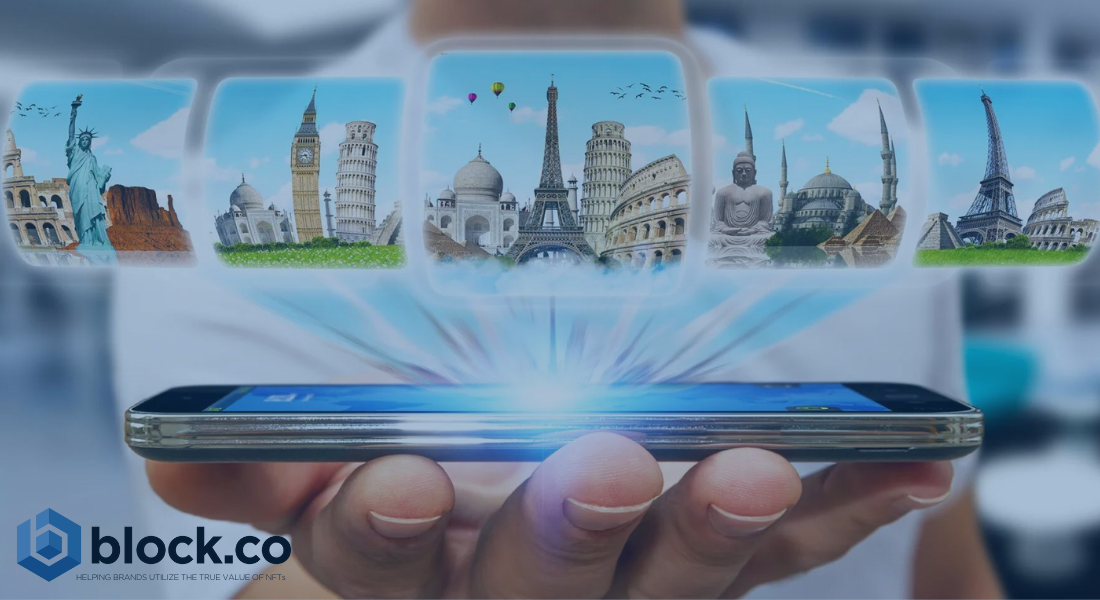
- NFT Auctions for your premium rooms. Hotels can leverage NFTs to auction certain rooms such as suites, or rooms where stars stayed, which can spike room prices rather than give a flat rate. The highest bidder can also win access to a special experience granted by the hotel such as a free spa experience for couples or any cool and personalized experience that come to mind.
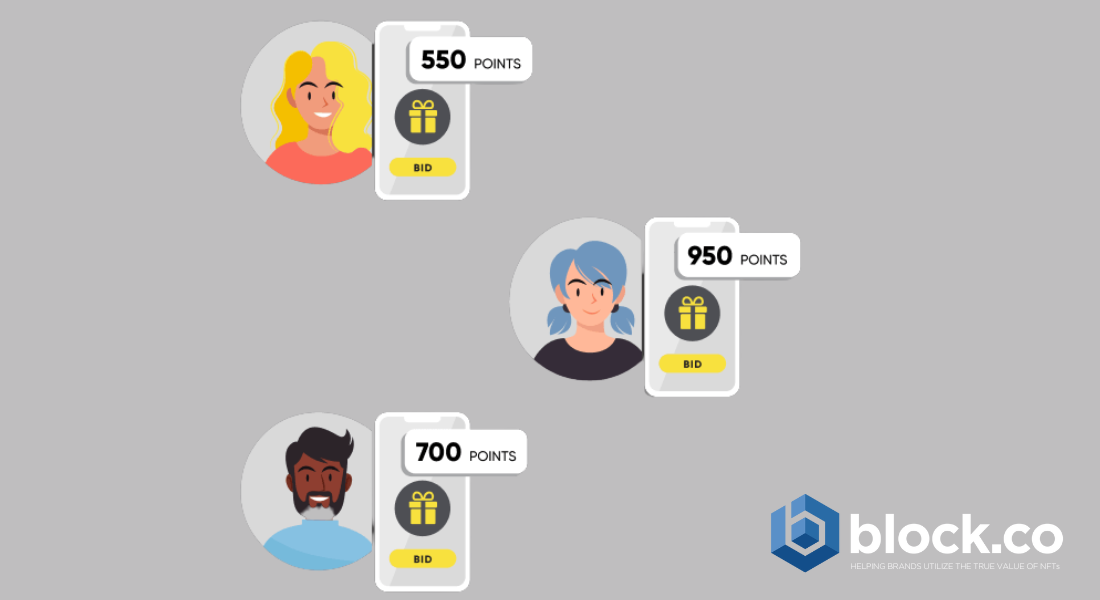
- A virtual visit to the rooms and collecting customer data through those virtual visits to re-market an enticing offering to that virtual visitor. Imagine if, in the near future, hotels would enable prospects to virtually visit the hotel, view the entire space, including the views, spas, and restaurants, then receive a mock booking receipt as an NFT, which will simulate a visit and experience to the hotel. Upon receiving the NFT, the customer would share some information that the hotel would request to personalize a certain offering later on if the customer did not book on the spot. In addition, customers can swap/sell the reservation if it was an NFT in case there was a sudden change of plans. The NFT, if sold, can reduce the pressure on hotels to rebook for cancellations. It’s notable to point out that companies such as Meta have already invested billions in developing new emerging virtual realities.
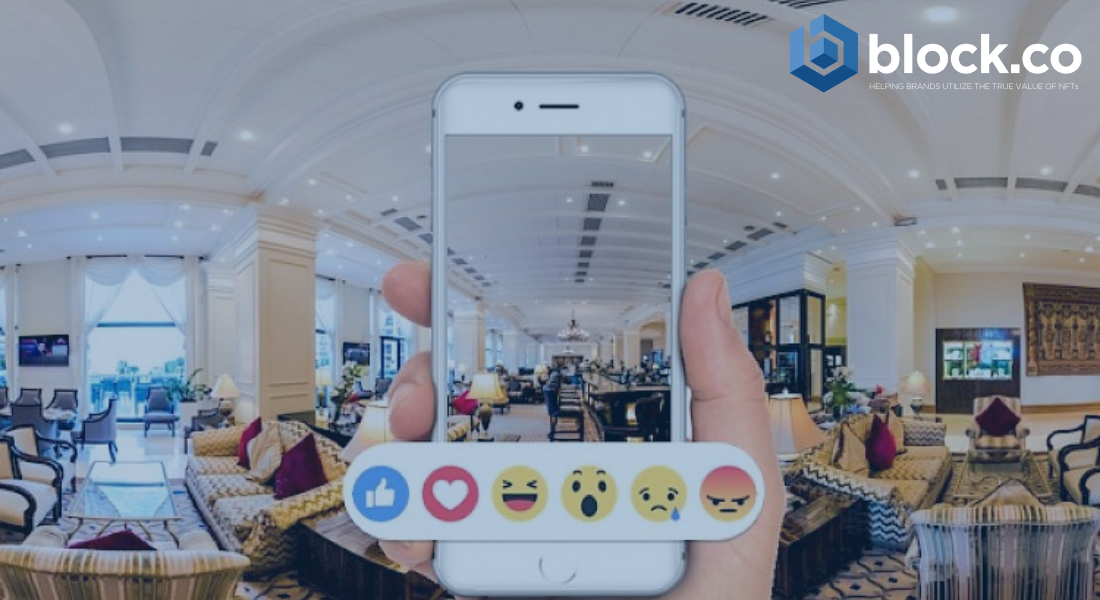
How Marriot and others have already used NFTs, but have barely scratched the surface of true utility:
Marriot International:
Marriott International partnered with digital artists TXREK, JVY, and Erick Nicolay to create unique digital images that owners would claim with each NFT. The NFT theme, “The Power of Travel”, was integrated as part of the existing marketing campaigns. Commenting on the drop, Brian Povinelli, senior vice-president of brand, loyalty and portfolio marketing at Marriott International said:
“As consumer behaviors evolve, we’ll seek moments to engage users with our portfolio of brands in a meaningful way that adds value to their relationship with us….. As one of the first hospitality brands to enter the digital world, it’s up to us to leverage the power of [our loyalty programme] Marriott Bonvoy and create ways for them to virtually experience the wonders of travel”
From Marriot’s blog:
Each of the NFTs created for Marriott Bonvoy are an interpretation of travel from the artists’ own unique experiences, illustrating how travel has an unmistakable impact on the human spirit.
MΞMORIED, created by Tarek Mustapha a.k.a. TXREK (Tarek Em), uncovers the magic envisioned from new experiences. Each destination provides its own adventure, with each experience logged into a memory that adds to the previous one as if they are connected. The digital art incorporates Marriott Bonvoy’s path connector as a pathway to the magical journeys ahead and the peace of mind in staying at any of the approximately 7,900 properties within the Marriott Bonvoy portfolio.
The Emotional Journey, designed by Jared “Jay” Richardson (JVY), was inspired by the ability of environmental travel to evoke different emotions, whether seeking inspiration escaping reality, or fulfilling one’s curiosity to explore. The digital art travels between three environments, each expressing a different point of time – from the forest where one can feel lost and the utopia where everything is perfect to the futurism which conveys a postmodern reality.
THE EXPERIENTIAL IN BETWEEN, developed by Erick Nicolay, explores the duality between the curated elegance of indoor travel experiences and the awe-inspiring scenic exploration of outdoor traveling experiences, with Marriott Bonvoy as the final destination. The digital art merges his appreciation for interior design and love for external nature only made possible through 3D surrealistic depictions.
… A countdown clock will draw attendees to the reveal of the NFTCODE where three lucky individuals will each win one of the NFTs as well as 200,000 Marriott Bonvoy points.
– Marriott Bonvoy Logs into the Metaverse with Debut of Travel-Inspired NFTs
Wyndham Hotels:
Named the number one hotel rewards program by readers of USA TODAY, Wyndham Hotels partnered with crypto start-up Bakkt to create a rewards program which allows users to easily convert loyalty currencies like points to cash, bitcoin, or discounted gift cards. In addition, Bakkt users also have the ability to pay with points directly with a growing ecosystem of merchants. Through the Bakkt app, members will be able link, view and redeem their Wyndham Rewards points.
Bakkt aims to help its partners, like Wyndham, facilitate new customer experiences by acting as the bridge to innovative payment solutions and expanded use cases for loyalty currencies. Bakkt accelerates the growth of enterprises by providing a frictionless customer journey to access the diverse spending options held in cryptocurrencies, loyalty and reward points, and gift cards.
“With more 87 million enrolled Wyndham Rewards members around the world, we’re constantly looking for new and meaningful ways for members to seamlessly engage with our program,” said Eliot Hamlisch, Executive Vice President of Loyalty and Revenue Optimization, Wyndham Hotels & Resorts. “Through a host of new redemption opportunities, Bakkt helps to elevate the value of Wyndham Rewards points to existing members while simultaneously allowing us to engage and enroll new travelers who may not yet be a part of our program.”
Innovative brands like Wyndham are leveraging new and emerging digital solutions to accelerate brand engagement and heighten customer satisfaction. Bakkt will handle all integration, support and reconciliation directly with enterprises on the Pay with Points platform, removing obstacles, expanding customer buying power, and expanding how consumers can use their rewards.
– Bakkt Partners with Wyndham Rewards to Expand Travel Offerings, Businesswire.
NoMo SoHo Hotel:
NoMo SoHo offered guests an innovative new way to book stays using blockchain technology through the “NFTstays” campaign.
“A selection of specially curated NFTs, are packaged with three- to six-night stays at NoMo SoHo. Guests booking these packages will have access to exclusive preferred rates at competitive prices by purchasing an NFT depicting a recognizable part of the iconic hotel. NFT options include The Lovewall in NoMo Kitchen and “The Tunnel of Love,” the hotel’s iconic archway at the main entrance. The NFT packages start with three-night stays and are priced from .41 ETH, which at launch is valued at USD$836. In tandem with plush guestrooms featuring 10-foot floor-to-ceiling windows and luxury amenities, additional perks when booking an NFT include late check-out, complimentary breakfast, a welcome amenity and more.”
– NoMo SoHo Hotel Launches the Nation’s First NFT With Hotel Stay Experience, Hospitality Net.
Room-night tokens’ (RNTs) by CASA DE CAMPO:
“We are very proud to have been the very first property to sign up to this new and rapidly growing technology. Through our innovative partnership, Casa de Campo’s guests can now reserve rooms with fully transferable RNTs, as well as view our amenities and accommodations before booking via virtual tours.
“Whether they are beginners or well-versed in NFTs, guests will appreciate the ease of use, unique benefits, personalised tokens, and cutting-edge technology in booking rooms that convert to room-night tokens (RFTs) that the guest ultimately owns.”
“When guests purchase transferable RNTs to reserve rooms through our partner Pinktada, they will have access to the most competitive rates on all of our luxury hotel rooms, suites and villas, combined with the flexibility to sell back or swap reservation tokens if there is a change in plans.”
“This allows our guests to take advantage of special rates that hotels normally only make available to fixed bookings but, crucially, without any of the risk, as they will have the option to sell or swap their RNTs if they need to.
“It is a revolutionary new concept and will undoubtedly be disruptive to the industry. From the hotel’s operational perspective, this new technology allows us to offer our customers greater flexibility, with the added benefit of having guaranteed revenue. It’s a win-win for all parties.
“At the end of their time at Casa de Campo, guests who have booked their holiday with RNTs will receive a commemorative NFT, customised with memories of their stay at our resort.”
Taken from Globetrender’s interview with Jason Kycek, senior vice-president at Casa de Campo Resort & Villas, Article: CASA DE CAMPO LEADS THE WAY WITH LUXURY HOSPITALITY NFT.
But how do you go about implementing these NFT strategies?
-To establish the direct communication we discussed earlier between the customer and the hotel, the customer would simply visit the hotel’s website and connect his web3 wallet. A web 3 wallet is usually a digital wallet that’s an app on your phone or a browser extension on your PC. This wallet allows users to manage cryptocurrency and digital assets. The wallet can be online, offline, or on a physical device and enables the safekeeping of private keys, and sending or receiving assets, including NFTs.
So, upon visiting the hotel’s site and connecting the web 3 wallet with just a click, this would allow the hotel to view and verify the NFT in the traveler’s wallet. The traveler may then choose to purchase an NFT representing a stay at the hotel, and this NFT would be transferred to the traveler’s wallet for future use.
Implementing NFT strategies for your hotel:
Strategy 1 – Minting bookings as NFTs.
In this case, we would simply need to connect the hotel’s booking website to block.co’s API and mint an NFT (or even manually by the hotel’s reception) with the details of the stay being incorporated as metadata with the actual NFT. Travelers could make their booking, pay as they would usually do with a debit/credit card, and receive an NFT of their booking via email or SMS or even a QR code on their screen. They could then claim the NFT through a gasless claim to their web3 wallet and present it to the destination upon arrival to enjoy their stay at the hotel. At their departure, they would hold their NFT in their wallet as memorabilia and/or share their NFT on social media to brag about their holiday!
How would that mint look like in practice?
First, we would decide on the method of delivery, either via email, SMS, QR code, or a direct drop to the web3 wallet, in this example, we will use an email drop. The traveler would go about the hotel website and choose the dates of his stay, the particular room, and other features such as an all-inclusive stay with breakfast, lunch and dinner. After making the choice, he would then supply his details, such as name, surname, ID number, and email address. The second step would be to complete his purchase on the site with perhaps a credit card. Once the hotel confirms the payment received, the API would talk to the platform and instruct it to mint an NFT of the confirmed and paid booking…

…and send it to the email address provided by the customer. Note that you can include your organization’s logo and specific instructions on how to obtain a web3 wallet and details in the email content.
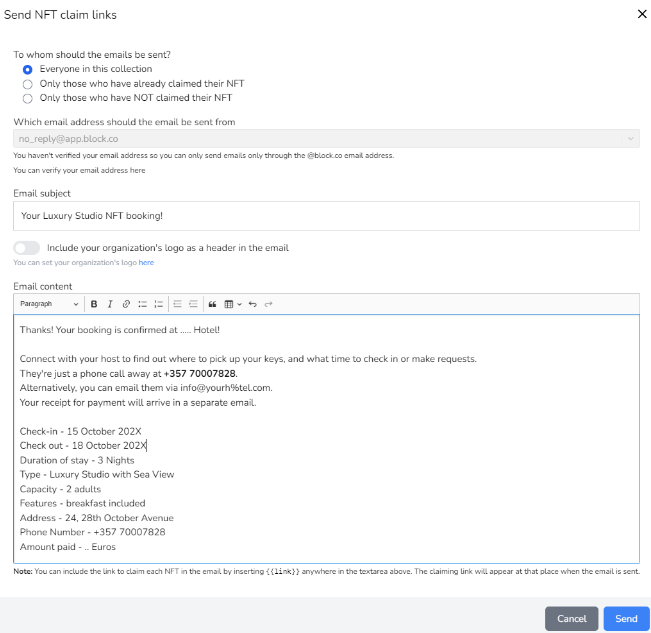
The third step involves the traveler opening his email account, clicking on the claim link for the NFT for him to store it on his wallet. There is no need for cryptocurrency at any point of the journey, as the hotel manager already prepaid the gas fees associated with claiming the NFT. This is how the email received would look like.
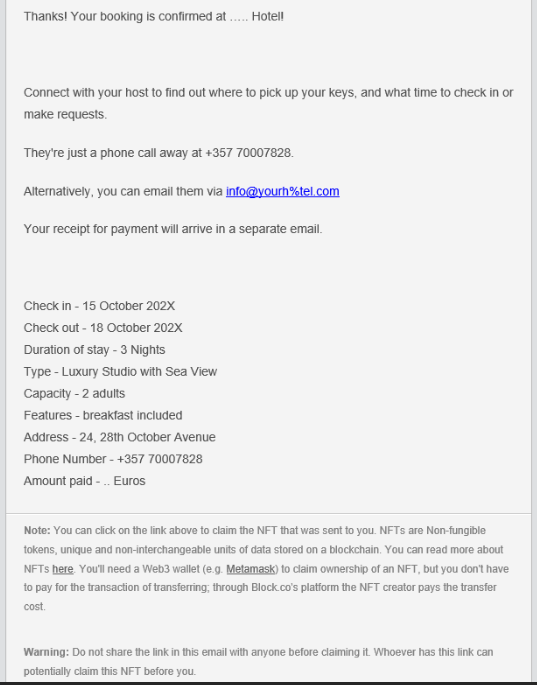

By clicking on the link, the traveler would then be redirected to the NFT claiming page:
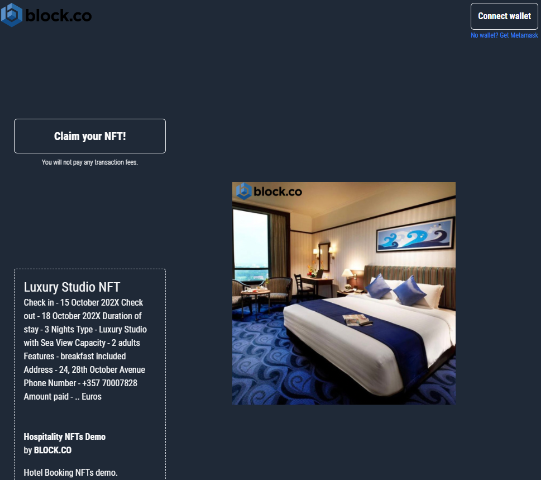
By clicking on “Claim your NFT!”, the claimant traveler would need to accept the Terms and Conditions for the NFT to be claimed.
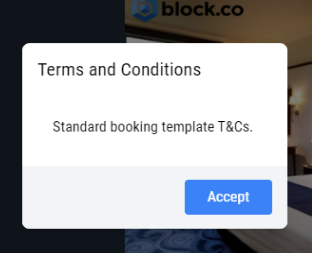
Once the NFT is claimed, the traveler can navigate to a decentralized marketplace such as Opensea.io to view his NFT, under the “Hidden” Section. He could even display the NFT in his public gallery for the rest of the world to see.
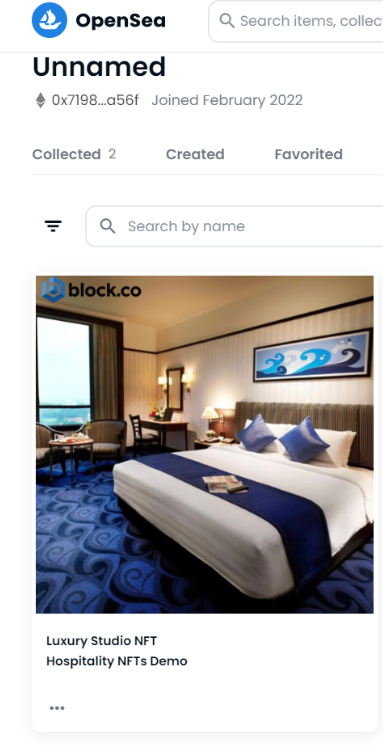
Lastly, the traveler would show the NFT to the hotel reception at his arrival, and the reception can easily check the validity of the NFT booking through the minting platform or even by using a public blockchain explorer.
Strategy 2 – Minting bookings as NFTs that may be resold on decentralized marketplaces with royalties paid back to hotels.
In this case, the smart contract deployed for the NFTs prior to minting would encapsulate a royalty fee in cases where the booking NFT would be traded on secondary marketplaces. Let’s say that a traveler booked his stay but unfortunately due to unforeseen circumstances he/she is not able to enjoy the stay at the hotel. Instead of canceling and trying to obtain a refund for his purchase, he could actually put up the booking NFT for sale. The buyer of the NFT would receive the booking NFT together with all the benefits associated with it and by presenting the NFT at the reception of the hotel, receive the key to his/her room. Moreover, since the hotel agrees with the arrangement and has also implemented a royalty fee (for example 10%) from the secondary purchase of the NFT, this would also translate to increased revenue. Lastly, in cases where the hotel does indeed offer refunds or refunds for a part of the amount spent, the traveler could sell the NFT back to the hotel through the same mechanism.
How would that mint look like in practice?
The minting would be exactly as the earlier example.

The only difference would be to add the percentage of royalties in the smart contract controlling the mint of NFTs. The hotel owner would set the rate for the secondary sale of the NFT, effectively making a return on each sale. This is how it would like on the platform.
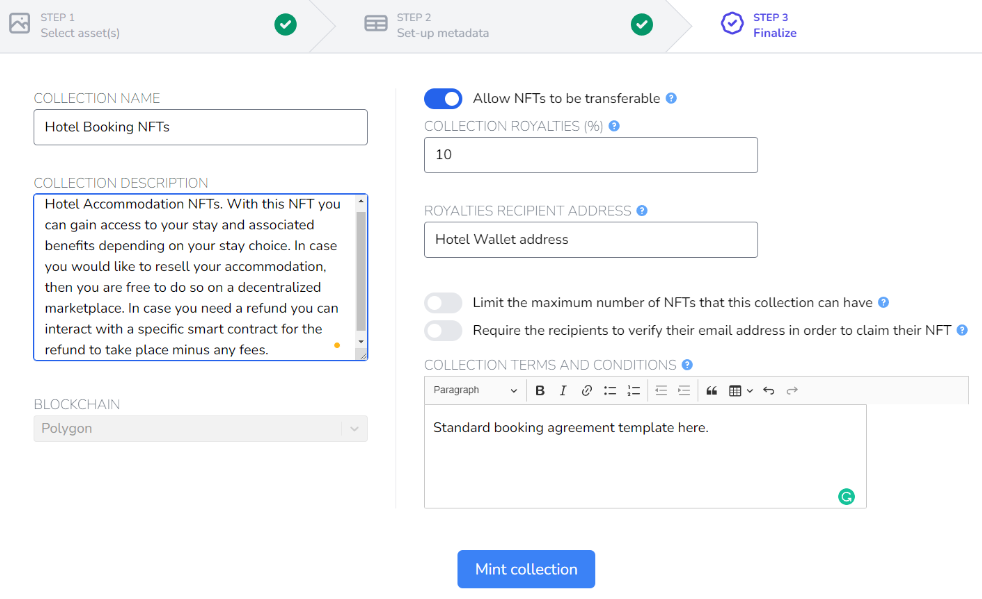
Strategy 3 – Minting booking as NFTs through auction.
In this case, the hotel has a designated section on their website for travelers (or even speculators) to buy booking NFTs for a particular peak season. I.e., the hotel could host auctions for its premium rooms and suites for the highest bidder, and that highest bidder could then resell the booking NFT for a profit perhaps, even after the hotel gets its royalties from the secondary sale.
How would that mint look like in practice?
The only difference would be to have an actual auction site for stays at the hotel and perhaps place a limit to this limited-time collection for premium stays during peak season. The royalty rate could be even higher in this case. Also notice that the NFTs have a limited number, showing rarity and exclusivity. Perhaps this type of NFT could only be auctioned to regular customers as a sign of appreciation for their loyalty. This is how it would like on the platform.
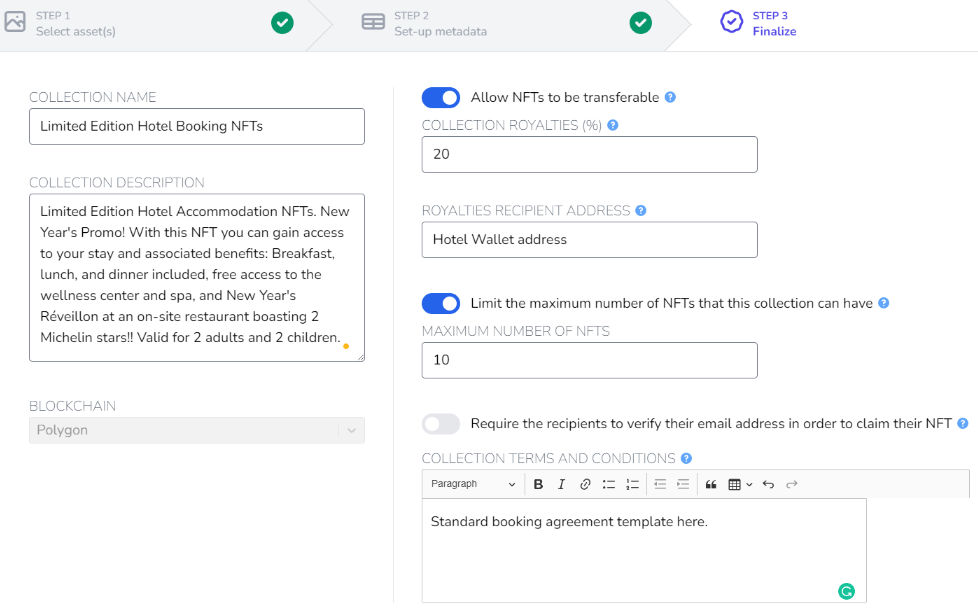
This is only the tip of the iceberg to the potential transformations in the hospitality industry through NFTs. Contact us to discuss the above and create the ideal strategy for your hotel today. To get more information about block.co’s services, please contact block.co directly or email at enquiries@block.co.
We regularly post educational materials on our social media, follow us to stay up to date about the latest blockchain and NFT news.
If your brand is ready to take the step into web 3.0 and NFT marketing, to optimize engagement with your audience in innovative ways, then click the button below to get your Free Trial, a limited number of Free NFTs, and a Free Consultation call from our team!
Contact Block.co directly or email at enquiries@block.co.
Tel +357 70007828
Get the latest from Block.co, like and follow us on social media:





